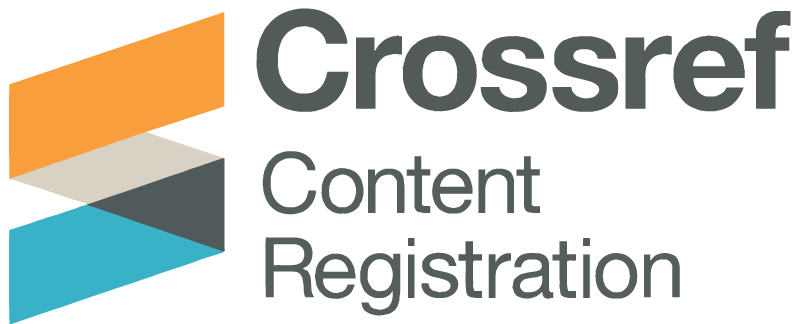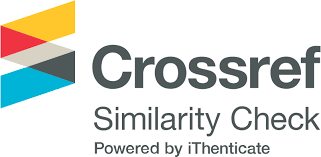المخاطر ذات الأولوية واستراتجيات العلاج في تطوير البرمجيات العالمية
DOI:
https://doi.org/10.59743/aujas.v6i5.1298الكلمات المفتاحية:
تطوير البرمجيات العالمية، إدارة المخاطر، تقنية دلفيالملخص
تجري الدراسة مراجعة للأدبيات من أجل تجميع المخاطر التي ترتبط ارتباطًا مباشرًا باستراتيجية تطوير البرمجيات العالمية. تتبنى دراسة الحالة منهجية دلفي التي تسمح للباحث بالتوصل إلى إجماع حول أكثر المخاطر ذات الصلة والحرجة المرتبطة بمشروع تطوير البرمجيات العالمية. شارك في الدراسة عشرون خبيرًا في تطوير البرمجيات من جميع أنحاء العالم ، مع ما لا يقل عن خمسة عشر خبيرًا في كل جولة من جولات دلفي. تم تصميم الجولات الأربع لطريقة دلفي المستخدمة في هذه الدراسة للحصول على إجماع حول المخاطر الأكثر أهمية لاستراتيجية تطوير البرمجيات العالمية ، بالإضافة إلى إجراء تقييم للمخاطر لجميع المخاطر التي تم تجميعها من المؤلفات والتحقق منها من قبل الخبراء المشاركين. تظهر النتائج أن هناك عشرة مخاطر رئيسية حظيت بالإجماع من قبل خبراء تطوير البرمجيات وتحتاج إلى معالجتها كأولوية في مشاريع تطوير البرمجيات العالمية ، حيث يكون لكل منهم احتمالية متوسطة إلى عالية لحدوثها وتأثيرها على نجاح مشروع البرمجيات باستخدام استراتيجية تطوير البرمجيات العالمية.
التنزيلات
المراجع
A. Al Zaidi and R. Qureshi, “Global Software Development Geographical Distance Communication Challenges,” The International Arab Journal of Information Technology, vol. 14, no. 2, pp. 215-222, 2017.
R. Prikladnicki, M. H. Yamaguti and D. C. Antunes, “Risk Management in Distributed Software Development: A Process Integration Proposal,” in Working Conference on Virtual Enterprises'04, 517-526, Toulouse, France, 2004. DOI: https://doi.org/10.1007/1-4020-8139-1_55
K. Mannaro, Adopting Agile Methodologies in Distributed Software Development (PhD Thesis), Cagliari, Italy: University of Cagliari, 2008.
E. Wallmüller, “Risk Management for IT and Software Projects,” in Business Continuity, Berlin, Germany, Springer-Verlag Berlin Heidelberg, 2002, pp. 165-178. DOI: https://doi.org/10.1007/978-3-642-56005-7_10
C. B. Sahin, O. B. Dinler and L. Abualigah, “Analysis of Risk Factors in the Scope of Distributed Software Team Structure,” European Journal of Science and Technology, no. 28, pp. 417-424, 2021.
D. Smite and J. Borzovs, “Managing Uncertainty in Globally Distributed Software Development Projects,” Latvijas Universitates Raksti, vol. 733, pp. 9-23, 2008.
M. Esteki, T. J. Gandomani and H. K. Farsani, “A Risk Management Framework for Distributed Scrum using PRINCE2 Methodology,” Bulletin of Electrical Engineering and Informatics, vol. 9, no. 3, pp. 1299-1310, 2020. DOI: https://doi.org/10.11591/eei.v9i3.1905
Q. Khan and S. Ghayyur, “Software Risks and Mitigation in Global Software Development,” Journal of Theoretical and Applied Information Technology, pp. 58-69, 2010.
J. Wan, D. Wan and H. Zhang, “Case Study on Business Risk Management for Software Outsourcing Service Provider with ISM,” Technology and Investment, vol. 1, pp. 257-266, 2010. DOI: https://doi.org/10.4236/ti.2010.14033
S. R. Jan, F. Dad, N. Amin, A. Hameed and A. S. A. Shah, “Issues in Global Software Developmet (Communication, Coordination and Trust) - A Critical Review,” IJSRSET, vol. 2, no. 2, pp. 660-663, 2016.
B. G. Tavares, C. E. S. da Silva and A. D. de Souza, “Practices to Improve Risk Management in Agile Projects,” International Journal of Software Engineering and Knowledge Engineering, vol. 29, no. 3, pp. 381-399, 2019. DOI: https://doi.org/10.1142/S0218194019500165
Oracle, “A Standardized Approach to Risk Improves Project Outcomes and Profitability (White Paper),” Oracle Corporation, Redwood Shores, CA, USA, 2010.
M. P. Baloch, S. Qadri, S. Hussain, S. Ahmad, A. Siddique and F. Azam, “Comparative Study of Risk Management in Centralized and Distributed Software Development Environment,” Science International, vol. 26, no. 4, pp. 1523-1528, 2014.
H. A. Bilal, S. Amjad and M. Ilyas, “A Comparative Study of Global Software Development Tools Supporting Project Management Activities,” International Journal of Education and Management Engineering, vol. 6, pp. 32-39, 2017. DOI: https://doi.org/10.5815/ijeme.2017.06.04
N. Sehrawat, N. Munsi and M. Jain, “Risk Management in Software Projects,” International Journal of Computer Science and Mobile Computing, vol. 3, no. 10, pp. 845-849, 2014.
B. de Wet and J. K. Visser, “An Evaluation of Software Project Risk Management in South Africa,” South African Journal of Industrial Engineering, vol. 24, no. 1, pp. 14-28, 2013. DOI: https://doi.org/10.7166/24-1-497
G. Arcidiacono, “Comparative research about high failure rate of IT projects and opportunities to improve,” PM World Journal, vol. 6, no. 2, pp. 1-10, 2017.
H. Abdul-Rahman, F. A. Mohd-Rahim and W. Chen, “Reducing failures in software development projects: effectiveness of risk mitigation strategies,” Journal of Risk Research, vol. 15, no. 4, pp. 417-433, 2012. DOI: https://doi.org/10.1080/13669877.2011.634520
S. M. Neves and C. E. S. da Silva, “Risk management applied to software development projects in incubated technology-based companies: literature review, classification, and analysis,” Gestão & Produção, vol. 23, no. 4, pp. 798-814, 2016. DOI: https://doi.org/10.1590/0104-530x472-15
D. Pimchangthong and V. Boonjing, “Effects of Risk Management Practice on the Success of IT Project,” Procedia Engineering: 7th International Conference on Engineering, Project, and Production Management, vol. 182, pp. 579-586, 2017. DOI: https://doi.org/10.1016/j.proeng.2017.03.158
T. W. Kwan and H. K. N. Leung, “A Risk Management Methodology for Project Risk Dependencies,” IEEE Transactions on Software Engineering, vol. 37, no. 5, pp. 635-648, 2011. DOI: https://doi.org/10.1109/TSE.2010.108
B. G. Tavares, C. E. S. da Silva and A. D. de Souza, “Risk management analysis in Scrum software projects,” International Transactions in Operational Research, pp. 1-22, 2017.
O. Didraga, “The Role and the Effects of Risk Management in IT Projects Success,” Informatica Economică, vol. 17, no. 1, pp. 86-98, 2013. DOI: https://doi.org/10.12948/issn14531305/17.1.2013.08
S. Vahidnia, O. O. Tanriover and I. N. Askerzade, “An Early Phase Software Project Risk Assessment Support Method for Emergent Software Organizations,” International Journal of Advanced Computer Science and Applications, vol. 8, no. 5, pp. 105-118, 2017. DOI: https://doi.org/10.14569/IJACSA.2017.080514
C. Lopez and J. L. Salmeron, “Risks Response Strategies for Supporting Practitioners Decision-Making in Software Projects,” Procedia Technology: Conference on ENTERprise Information Systems / HCIST 2012, vol. 5, pp. 437-444, 2012. DOI: https://doi.org/10.1016/j.protcy.2012.09.048
V. Bhoola, S. B. Hiremath and D. Mallik, “An Assessment of Risk Response Strategies Practiced in Software Projects,” Australasian Journal of Information Systems, vol. 18, no. 3, pp. 161-191, 2014. DOI: https://doi.org/10.3127/ajis.v18i3.923
V. A. Banuls, C. Lopez, M. Turoff and F. Tejedor, “Predicting the Impact of Multiple Risks on Project Performance: A Scenario-Based Approach,” Project Management Journal, vol. 48, no. 5, pp. 95-115, 2017. DOI: https://doi.org/10.1177/875697281704800507
F. S. Rahayu, T. Indrawan and S. Kamarudin, “Risk mitigation strategies in implementing scrum framework for internet-based IT companies in Indonesia,” Indonesian Journal of Information Systems, vol. 3, no. 1, pp. 50-63, 2020. DOI: https://doi.org/10.24002/ijis.v3i1.3589
S. K. B. Shiri, S. S. K. Teja and N. Ganesan, “Advance Tools and Techniques for Software Risk Management,” International Journal of Advanced Research in Computer and Communication Engineering, vol. 5, no. 3, pp. 456-459, 2016.
M. Khraiwesh, “Project Monitoring and Contorl Measures in CMMI,” International Journal of Computer Science & Information Technology, vol. 5, no. 5, pp. 39-56, 2013. DOI: https://doi.org/10.5121/ijcsit.2013.5503
S. Y. Chadli and A. Idri, “Identifying and mitigating risks of software project management in global software development,” in Proceedings of the 27th International Workshop on Software Measurement and 12th International Conference on Software Process and Product Measurement, Gothenburg, Sweden, 2017. DOI: https://doi.org/10.1145/3143434.3143453
G. N. Aranda, A. Vizcaino and M. Piattini, “Analyzing and Evaluating the Main Factors that Challenge Global Software Development,” The Open Software Engineering Journal, vol. 4, pp. 14-25, 2010. DOI: https://doi.org/10.2174/1874107X01004020014
M. Jimemez, A. Vizcaino and M. Piattini, “Improving Distributed Software Development in Small and Medium Enterprises,” The Open Software Engineering Journal, vol. 4, pp. 26-37, 2010. DOI: https://doi.org/10.2174/1874107X01004020026
S. Haq, M. Raza, A. Zia and M. N. A. Khan, “Issues in Global Software Development: A Critical Review,” Journal of Software Engineering & Applications, vol. 4, pp. 590-595, 2011. DOI: https://doi.org/10.4236/jsea.2011.410069
M. Tihinen, Measurement-based management of global software development projects (PhD Thesis), Linnanmaa: VTT & University of Oulu, 2014.
E. O. Conchuir, P. J. Agerfalk, H. H. Olsson and B. Fitzgerald, “Global Software Development: Where are the benefits?,” Communication of the ACM, vol. 52, no. 8, pp. 127-131, 2009. DOI: https://doi.org/10.1145/1536616.1536648
R. Prikladnicki, J. L. N. Andy and R. Evaristo, “Global Software Development in Practice: Lessons Learned,” Software Process Improvement and Practice, vol. 8, pp. 267-281, 2003. DOI: https://doi.org/10.1002/spip.188
A. Elzamly and B. Hussin, “Modelling and Evaluating Software Project Risks with Quantitative Analysis Techniques in Planning Software Development,” Journal of Computing and Information Technology, vol. 2, pp. 123-139, 2015. DOI: https://doi.org/10.2498/cit.1002457
A. Lamersdorf and J. Munch, “Studying the Impact of Global Software Development Characteristics on Project Goals: A Causal Model,” The Open Software Engineering Journal (TOSEJ), vol. 4, pp. 2-13, 2010. DOI: https://doi.org/10.2174/1874107X01004020002
C. B. Widiyatmoko, Methodological Support for Task Coordination in Global Software Engineering Projects at Product Software Companies (Master Thesis), Utrecht: Utrecht University, 2017.
N. Prenner, C. Unger-Windeler and K. Schneider, “Goals and challenges in hybrid software development approaches,” Journal of Software: Evolution and Process, vol. 33, no. 11, 2021. DOI: https://doi.org/10.1002/smr.2382
M. C. Garrido, M. C. A. Ruotolo, R. F. M. L and H. A. Naked, “Risk identification techniques knowledge and application in the Brazilian construction,” Journal of Civil Engineering and Construction Technology, vol. 2, no. 11, pp. 242-252, 2011. DOI: https://doi.org/10.5897/JCECT11.024
R. K. Kansal and M. Sharma, “Risk Assessment Methods and Application in the Construction Projects,” International Journal of Modern Engineering Research, vol. 2, no. 3, pp. 1081-1085, 2012.
C. C. Hsu and B. A. Sandford, “The Delphi Technique: Making Sense of Consensus,” Practical Assessment, Research & Evaluation, vol. 12, no. 10, pp. 1-8, 2007.
G. J. Skulmoski, F. T. Hartman and J. Krahn, “The Delphi Method for Graduate Research,” Journal of Information Technology Education, vol. 6, pp. 1-21, 2007. DOI: https://doi.org/10.28945/199
P. J. Agerfalk, B. Fitzgerlad, H. H. Olsson and E. O. Conchuir, “Benefits of Global Software Development: The Known and Unknown,” in Making Globally Distributed Software a Success Story, Berlin, Springer-Verlag Berlin Heidelberg, 2008, pp. 1-9. DOI: https://doi.org/10.1007/978-3-540-79588-9_1
A. S. Khan and Z. Subhan, “Distributed Software Development Process, Initiatives and Key Factors: A Systematic Literature Review,” International Journal of Multidisciplinary Sciences and Engineering, vol. 5, no. 12, pp. 7-21, 2014.
التنزيلات
منشور
إصدار
القسم
الرخصة
الحقوق الفكرية (c) 2021 مجلة الجامعة الأسمرية

هذا العمل مرخص بموجب Creative Commons Attribution 4.0 International License.
تتعلق الحقوق بنشر وتوزيع البحوث المنشورة في مجلة الجامعة الأسمرية، حيث توضح للمؤلفين الذين نشروا مقالاتهم في مجلة الجامعة الأسمرية، كيفية استخدام أو توزيع مقالاتهم، والاحتفاظ بجميع حقوقهم في المصنفات المنشورة، مثل (على سبيل المثال لا الحصر) الحقوق التالية:
- حقوق الطبع والنشر وحقوق الملكية الأخرى المتعلقة بالمقال المقدم، مثل حقوق براءات الاختراع.
- استخدام البحث المنشور في مجلة الجامعة الأسمرية في الأعمال المستقبلية الخاصة بالمؤلفين، بما في ذلك المحاضرات والكتب، والحق في إعادة إنتاج المقالات لأغراضهم الخاصة، والحق في الأرشفة الذاتية لمقالاتهم.
- الحق في الدخول في مقال منفصل، أو للتوزيع غير الحصري لمقالاتهم مع الإقرار بنشره الأولي في مجلة الجامعة الأسمرية.
الحقوق الفكرية: وفق الرخصة الدولية للأعمال الإبداعية المشاعة، النسخة 4.0.
بيان الخصوصية: سيتم استخدام الأسماء وعناوين البريد الإلكتروني التي تم إدخالها في موقع مجلة الجامعة الأسمرية للأغراض المذكورة فقط والتي استخدمت من أجلها.










